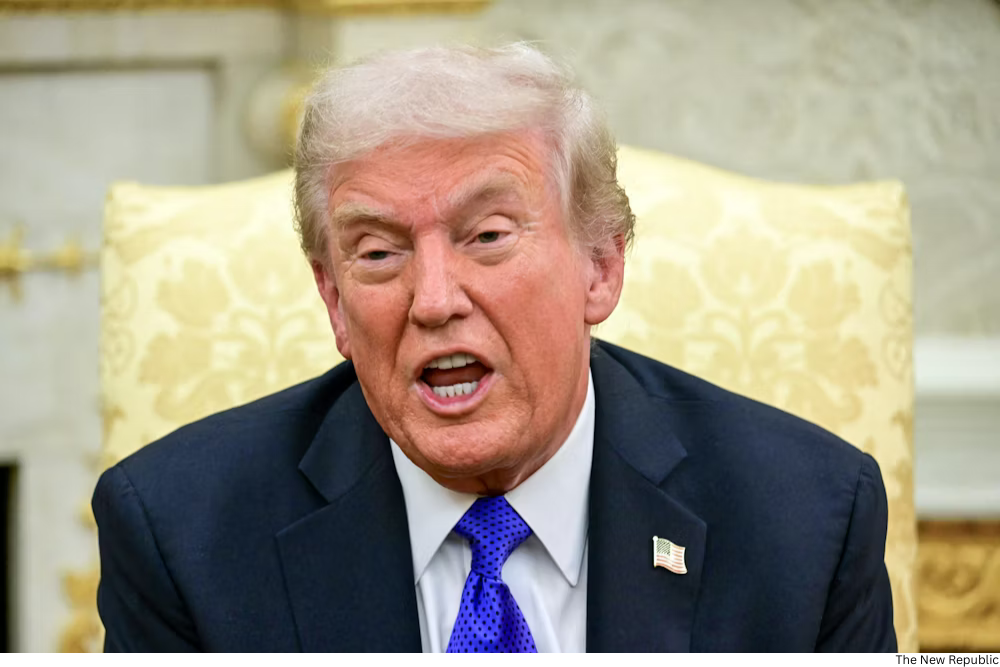In democracies once defined by ideals of fairness and dialogue, a darker force is taking hold: the politics of retribution. Once reserved for autocratic regimes, revenge has become a central currency in modern political life. From legislative chambers to social media, leaders and citizens alike are embracing the idea that political power should be used not merely to govern but to punish — to get even, to humiliate, to settle old scores.
This transformation didn’t happen overnight. It has crept up gradually, often disguised as justice, accountability, or patriotism. But beneath the surface, the impulse is unmistakable: politics is becoming personal. It’s no longer just about what policies should be enacted, but about who deserves to win — and who deserves to be crushed.
In the United States, this shift is particularly visible. The national conversation has been hijacked by a cycle of outrage and retaliation. Former President Donald Trump’s rhetoric about “retribution” has transformed political discourse into a zero-sum contest between loyalists and enemies. He has repeatedly promised to “take revenge” on political opponents and institutions that investigated him, casting the justice system itself as a tool of partisan warfare.
Yet the desire for retribution is not confined to one man or one party. It is a symptom of a deeper malaise: a collective loss of faith in the impartiality of institutions. Many Americans now view the courts, the media, and even science itself as extensions of political tribes. In such an environment, the urge to punish — rather than persuade — becomes irresistible.
This phenomenon isn’t limited to the U.S. In countries like Brazil, India, Hungary, and the Philippines, leaders have harnessed resentment and division to consolidate power. They promise to “fight back” against elites, journalists, minorities, or foreign powers — whoever can be framed as the enemy of the people. Retribution becomes not only a campaign strategy but a governing philosophy. Every perceived slight demands payback, every defeat a vendetta.
In India, Prime Minister Narendra Modi’s government has faced criticism for using state institutions to target political rivals and dissenters under the guise of nationalism. In Brazil, Jair Bolsonaro’s years in power left a legacy of polarization so deep that even after his departure, the politics of revenge continues to dominate public debate. Hungary’s Viktor Orbán has built an entire political machine around the notion that his opponents — from the European Union to civil society groups — must be punished for challenging national sovereignty.
The irony is that revenge politics often emerges in times of uncertainty and anxiety. Economic instability, rapid technological change, and cultural shifts leave citizens feeling powerless. In that vacuum, resentment becomes a potent weapon. Politicians exploit it by identifying scapegoats and promising to restore control — often through punishment. The appeal is emotional, not rational. Retribution feels like empowerment, even when it solves nothing.
Social media has poured gasoline on this fire. Platforms designed to connect people have become digital battlegrounds where humiliation and outrage are rewarded with likes, shares, and virality. Political discourse has been reduced to “gotcha” moments and takedowns. The algorithms favor anger, and politicians have adapted accordingly. The result is a feedback loop of vengeance: the more brutal the rhetoric, the greater the engagement.
The danger of this new normal is profound. When politics becomes a contest of revenge, compromise becomes impossible. Every concession looks like betrayal. Every loss feels existential. The governing ethos shifts from “we the people” to “us versus them.” Laws become tools of retaliation; justice becomes selective. The very idea of democracy — that power should be shared and contested peacefully — begins to erode.
History offers grim lessons about where this trajectory can lead. When political systems embrace retribution as their organizing principle, they often spiral into cycles of repression and backlash. The Weimar Republic’s collapse into fascism, the violent aftermath of revolutions in Latin America, and the endless tit-for-tat politics of postwar Europe all illustrate how easily vengeance can destroy civic order. Once a society accepts that those in power have the right to punish their enemies, the line between democracy and despotism vanishes.
But it doesn’t have to end that way. Breaking the cycle requires more than moral appeals — it requires rebuilding trust. Citizens must believe once again that justice is impartial and that government serves more than the victors of the last election. Political leaders who resist the temptation of revenge — who choose restraint over retaliation — must be supported, even when it feels unsatisfying.
Forgiveness and accountability are not opposites; they are the twin pillars of a healthy democracy. True accountability holds wrongdoers responsible without weaponizing the process. True forgiveness recognizes that collective healing is impossible when every grievance becomes a crusade.
The politics of retribution offers only the illusion of strength. It makes people feel powerful in the short term but leaves societies weaker, angrier, and more divided. If nations continue down this path, they may win battles of vengeance but lose the larger war for justice and democracy.
The warning signs are all around us: rallies framed as acts of revenge, investigations pursued as payback, and policies drafted not for progress but punishment. If we continue to normalize revenge as a political tool, we risk sleepwalking into an era where government itself becomes an instrument of spite.
We must wake up before that happens — before justice turns into vengeance, and democracy turns into retribution.
%20(4).png)








